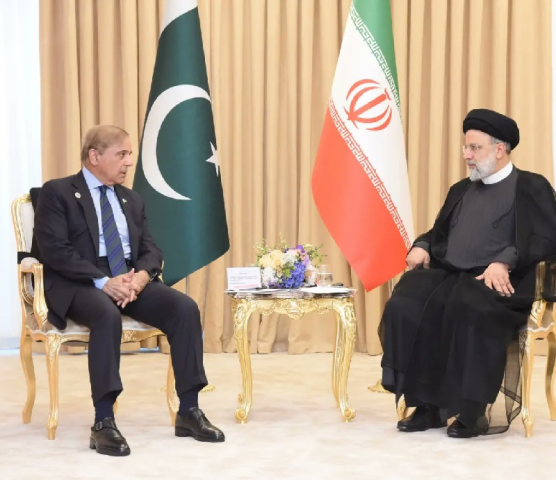Iran ready to meet energy needs
Sets bilateral trade target of $5 billion for 2023

Taking advantage of their pivotal geostrategic location, both Pakistan and Iran can increase bilateral trade to $5 billion in 2023.
An Iranian delegation led by the President of the Iranian Chamber of Commerce, Industries, Mines, and Agriculture (ICCIMA) Ghulam-Hosein Shafeie, and comprising of the Consul General of Iran Hassan Nourian, prominent Iranian businessmen in addition to a few Iranian parliamentarians, visited the Karachi Chamber of Commerce and Industry (KCCI) on Thursday.
Optimistic about achieving the $5 billion trade target, the ICCIMA president said that they intend to implement a new economic plan and make the most of the friendly relations between the economic and private sectors of the two countries to advance cooperation.
A Memorandum of Understanding (MoU) was also signed, between KCCI President Muhammed Tariq Yousuf and ICCIMA President Masoud Golshirazi, to establish a practical framework for the development of business relations between the two chambers and to set forth the procedures of cooperation which could enhance the implementation of their mutual economic objectives.
“Iran is ready to meet Pakistan’s growing needs in the energy sector,” emphasised Shafeie.
“The real potential for bilateral trade between Pakistan and Iran amounts to at least $5 billion in the near-term and this can be materialised by next year,” maintained the Irfan Iqbal Sheikh, President of the Federation of Pakistan Chamber of Commerce and Industry during the delegation’s visit to the federal chambers.
He further added that land-based and border trade accounts for 70-80% of the total trade of many geographically-contiguous and developed countries “as it is cost-effective, not only in terms of product pricing but also in helping to save shipping costs”. Highlighting issues Pakistan may come across in achieving its tar- gets with Iran, Ahmad Jawad, Vice President of the Pakistan Businesses Forum (PBF) said, “The United States has granted exemptions to countries such as Turkey, Iraq, India and others, allowing them to trade in the energy sector with Iran but has not extended such favours to Pakistan. Another concern for Pakistan is the Financial Action Task Force (FATF) blacklisting Iran. While the FATF does not prohibit trade relations with blacklisted states, such engagements may bring global scrutiny to Islamabad. While the threat of international sanctions remains a key concern for Pakistan, it does not preclude Pak-Iran economic cooperation. In any case, Pakistan and Iran may also conduct their trade by way of barter to ensure that US sanctions are not triggered.”
Jawad added that “Iran’s place as a regional power and its oil and gas reserves should prompt Islamabad to improve ties with Tehran. In our neighbourhood, Beijing accounts for 25% of Tehran’s imports and is the number one buyer of Iranian oil today.”



















COMMENTS
Comments are moderated and generally will be posted if they are on-topic and not abusive.
For more information, please see our Comments FAQ